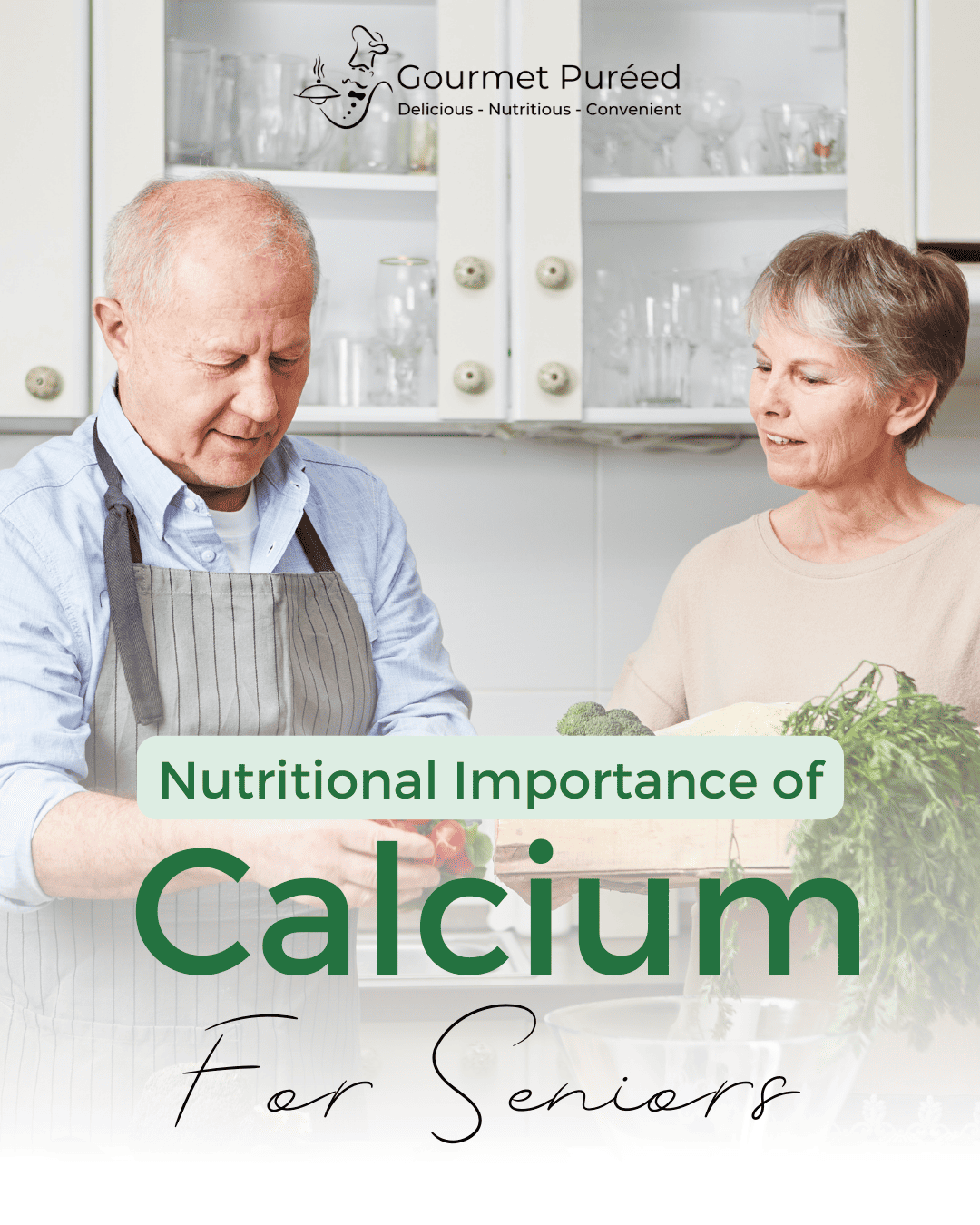Nutritional Importance of Calcium for Seniors
Calcium is a vital nutrient for the human body. It is critical in maintaining strong bones and supporting various bodily functions. As people age, their bodies become less efficient at absorbing calcium, making it even more vital for seniors to ensure they get enough of this mineral through their diet. This article will explore the nutritional importance of calcium for seniors, the recommended daily intake, and the best food sources to help you meet your needs.
The Consequences of Not Getting Enough Calcium
It is widely known that calcium plays a crucial role in keeping our bones and teeth strong. However, many need to be aware of its other vital bodily functions, such as regulating heart rhythm, nerve function, muscle contraction, and blood clotting.
As people age, particularly seniors, they become more susceptible to osteoporosis, a debilitating disease characterized by brittle and porous bones. The prevalence of this condition is alarming, with over 10 million Americans suffering from it, 80% of them being women.
Unfortunately, 1.5 million fractures occur yearly in the U.S. due to osteoporosis, with adults over 50 at risk of breaking a bone. It is crucial to have a healthy lifestyle that includes a balanced diet and exercise, rich in calcium and Vitamin D, to maintain good bone health and prevent osteoporosis.
- Incorporate Calcium-rich Foods into Your Daily Meal Plan
Increasing calcium and Vitamin D intake through diet and supplements is essential to prevent bone loss as we age. Include calcium-rich foods like dairy, leafy greens, fortified soy, seafood, orange juice, and cereals in your daily diet.
Supplementation with multivitamins or calcium pills can also be effective, but it’s best to consult your healthcare provider before starting. Stick to a routine for taking supplements, and use a pill bottle, organizer, or reminder to help you remember.
- Recommended daily calcium intake
To ensure optimal calcium absorption, the recommended daily intake for females over 50 years of age, and males over 70, is 1200mg. A food item with 20% DV of calcium is considered an excellent choice, while 10% DV indicates a good source of calcium. Keeping track of the amount of calcium you consume to maintain good bone health is essential.
- Maximize Calcium Absorption with Vitamin D
Vitamin D is mainly obtained from sunlight exposure, but other factors such as season, time, cloud cover, skin pigmentation, and sunscreen use can affect its synthesis. Most of the vitamin D in the American diet comes from fortified food, such as milk and other dairy products, cereal, orange juice, yogurt, and margarine.
Some food sources of Vitamin D include fish liver oils and fatty fish (tuna and salmon). Supplements are also available to meet the daily recommended intake. Consult your doctor if you have concerns about vitamin D intake and explore ways to improve your overall nutrition.
The Bottom Line
Calcium is essential to keep strong bones and overall health in seniors. Adequate calcium intake can help prevent bone loss and reduce the risk of osteoporosis. While many foods contain calcium, it may be challenging for some seniors to meet their daily requirements through diet alone.
For those who have trouble meeting their nutritional needs, Gourmet Pureed offers delicious and nutritionally tailored home-delivery meals to meet specific health conditions and requirements. Our health condition menus allow seniors to efficiently ensure they get the essential nutrients needed to maintain a healthy and active lifestyle.
Meta Description
Discover the crucial role of calcium in maintaining strong bones for seniors and how to get adequate intake through diet and supplements!




